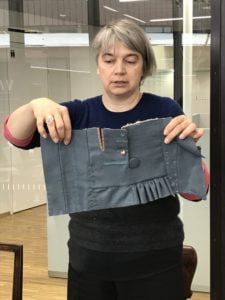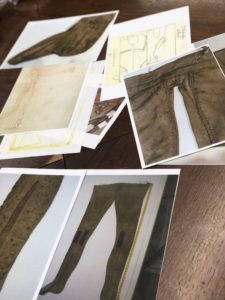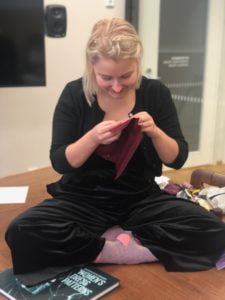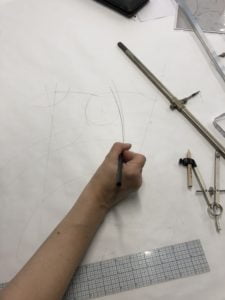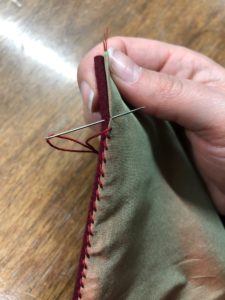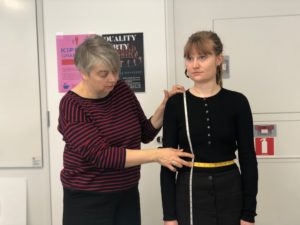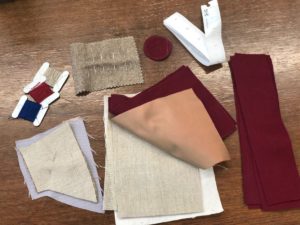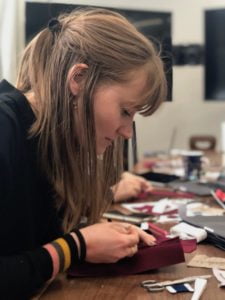Tailoring Techniques
Date: 7–8 February 2019
Location: Aalto University
Organised by: Sophie Pitman
Expert maker: Melanie Braun
What skills and materials did tailors use to achieve Renaissance fashions? How can historians learn and study with their hands? How can we best take notes, videos, and photographs to record our experiments?
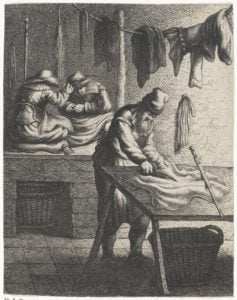
Jan Georg van Vliet, Kleermaker, 1635, etching on paper, 21 cm x 16.2 cm, Rijksmuseum RP-P-OB-103.713
In order to answer these questions, and to launch the experimental year of the project, this series of hands-on experiments was organized by Sophie Pitman and taught by Melanie Braun, Head of Wardrobe at the Nationale Reisopera, Enschende, Netherlands and teacher at the School of Historical Dress, London. The aim was not only to introduce the Refashioning group to the techniques used by tailors during the Renaissance, but to also see what kinds of conversations and ideas developed from hands-on working, and to get first-hand experience of the affordances and challenges of the materials commonly used by tailors in this era. Day One focused on selecting materials, learning to use tools, hand stitching seams and piecings, pad-stitching, quilting and stiffening, and making buttonholes. Day Two focused on measuring the body and pattern drafting.
Aims:
- To better understand the skills of early modern tailors
- To learn the types of stitches, materials, and tools used by tailors to make and structure fashionable dress in the sixteenth- and seventeenth centuries
- To make a tailoring sampler of a range of construction and decorative techniques
- To develop our practices of note-taking
Outcomes:
- Learning the range of stitches, tools, and materials used by the tailor
- Understanding the role of complex geometrical pattern drafting combined with tacit knowledge of the body
- Appreciating the physical and mental challenges of this kind of work, for those of us not used to hand-sewing and other craft techniques
- Developing a methodology of notetaking and recording our experiments with photography and film


